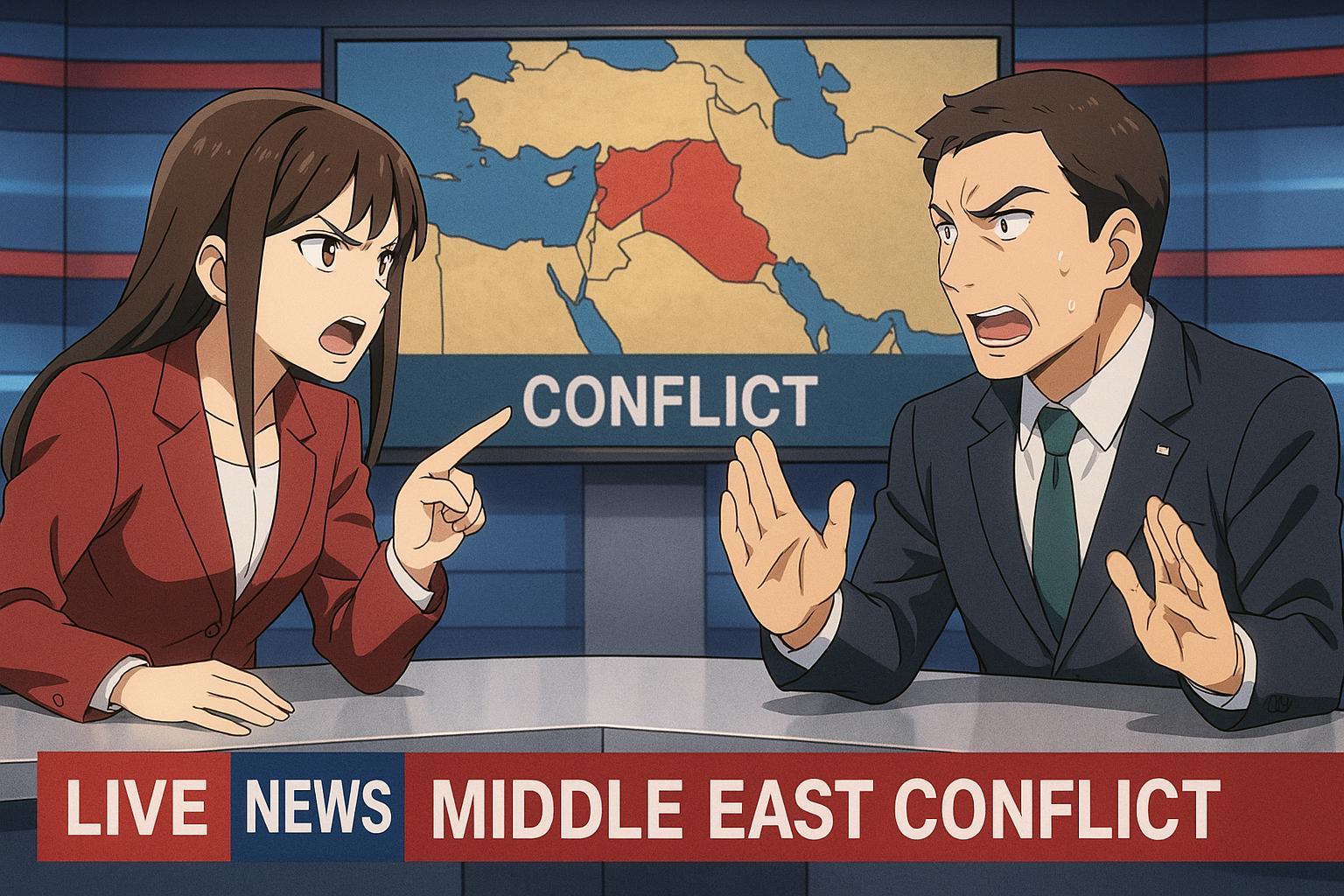In a recent segment on Channel 4 News, a heated exchange unfolded between presenter Krishnan Guru-Murthy and Israeli government spokesperson David Mencer, who accused Guru-Murthy of "advocating for Hamas." The discussion came in the wake of a tragic incident in Rafah, where health officials reported that Israeli troops had opened fire, resulting in the deaths of at least 27 Palestinians. According to the Israeli military, the troops acted in response to a perceived threat when a group reportedly left a designated access route. Mencer emphasised that the forces did not target civilians, yet this justification did little to quell the ongoing discourse surrounding the violence.
During the interview, Mencer faced scrutiny when he claimed that video evidence showed Hamas firing at their own people. In a striking rebuttal, he stated, "Sometimes Krishnan, you actually advocate for Hamas and I must say it's bizarre," reflecting the heightened tensions in dialogue over the Israel-Palestine conflict. This interaction is emblematic of the complex narratives surrounding the situation, where heavily mediated views often clash dramatically.
The portrayal of Hamas and its role in Gaza continues to be a contentious issue. In a previous interview on Channel 4 News, Brigadier General Amir Avivi argued that Hamas must be dismantled to restore peace, asserting that it could not remain in Gaza for stability to be achieved. He underscored the considerable suffering endured by Israeli civilians due to Hamas's actions, urging a definitive end to their governance. His comments reinforce a broader Israeli narrative focused on perceived existential threats from the militant group, compelling them to take decisive military action.
Adding another layer to the narrative, Fleur Hassan-Nahoum, the Israeli Special Envoy for the Foreign Ministry, suggested in a separate interview that Palestinians remaining in Gaza might very well be affiliated with Hamas. This assertion opens the door to discussions about the difficulties in distinguishing between civilians and combatants, often resulting in tragic casualties on both sides. The complexities inherent in such a situation lay bare the ethical dilemmas faced by military forces operating in densely populated areas.
The urgency of military action against Hamas has also been voiced by other Israeli officials. Notably, Avi Hyman, another spokesperson, claimed that Israel would aim to eradicate Hamas within weeks, underscoring a pressing need to address the threats posed to Israeli citizens. This narrative of urgency has resonated widely, affecting public perceptions and policies regarding the military approach in Gaza.
In contrast, voices like Prince Turki Al-Faisal, the former head of Saudi Arabian intelligence, have highlighted the broader implications for peace talks in the region, examining how the actions of both Israel and Hamas influence the prospects for a two-state solution. Al-Faisal's insights stress the intricate interplay of regional and international dynamics that shape the ongoing conflict, suggesting that any resolution necessitates constructive dialogue amongst all parties involved.
These layered interactions and perspectives encapsulate the broader struggle for understanding and resolution in the ongoing conflict, revealing how entrenched positions can stifle progress while also igniting contentious debates over responsibility, narrative framing, and humanitarian considerations.
📌 Reference Map:
- Paragraph 1 – [1], [5]
- Paragraph 2 – [2], [3]
- Paragraph 3 – [4], [6]
- Paragraph 4 – [2], [7]
- Paragraph 5 – [3]
- Paragraph 6 – [6]
Source: Noah Wire Services
